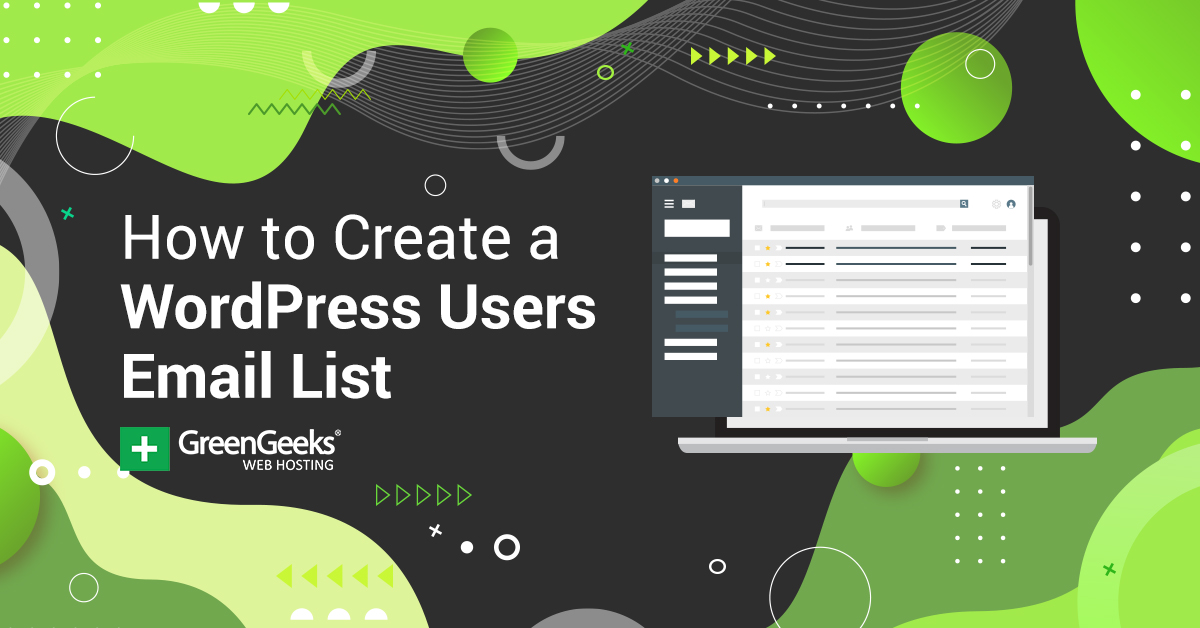Recommended Facts On Selecting A Hospital CEO Email List
Wiki Article
What Do I Need To Consider When Buying What I Should Consider When Purchasing A Family Medicine Email Database?
Consider a number of aspects when purchasing an email database to use for Family Medicine. This will guarantee you high-quality data, which is accurate and compliant with the law to be used for your marketing campaigns. There are a few things to take into consideration: Quality of data and accuracy
Source of data: Verify that the source of data comes from verified and trusted sources. This includes medical directories, licensing bodies professional associations, or an opt-in databases. The email addresses of family medicine professionals' addresses should be up-to-date and relevant to the audience you are targeting.
Verification Process Find out for details on the verification process offered by the provider. Email addresses that are no longer active or not valid must be removed from the list. Validated emails decrease bounce rates and increase deliverability.
Segmentation Options : The list of options should allow segmentation in accordance with criteria such as geographic location, the number of years in practice, size of the practice, or specific areas (e.g., pediatrics, geriatrics, and preventive medicine). Segmentation can help with more personal and targeted outreach, increasing engagement rates.
2. Legal Regulations
Data Privacy Laws - Ensure that the list conforms to the General Data Protection Regulation in Europe, the California Consumer Privacy Act in the U.S.A. and any other applicable data privacy laws. Email addresses should only be gathered with consent and legally to stay clear of legal sanctions.
CAN-SPAM Act Compliance: If you're involved in emails for marketing purposes in the U.S., make sure that the list of recipients is in compliance with the CAN-SPAM Act. Use clear opt-out mechanisms and stay clear of false subject lines and other information in emails.
The opt-in consent must be confirmed. used to collect email addresses. This means physicians who do family medicine have given their consent to receive marketing communications.
3. Provider Reputation
A reputable provider: Choose the service provider that is known for providing top-quality and compliant data. Review, testimonials and case studies from customers to assess the provider's credibility and reliability.
Transparency. The service provider must be clear about how and when the data is changed. It's a red flag if the service provider is unable to explain how they source their data.
Customer Support: Ensure that the company offers reliable customer service. You may require assistance with technical issues, segmentation of your list, or ensuring that it is in compliance with the regulations.
4. Cost and Return on Investment (ROI).
Pricing Models. The providers have different pricing models such as pay-per-contact, flat fees, or subscriptions. Select a pricing model that is compatible with your budget and will guarantee an excellent return on your investment.
Refund and Replacement Policy Trustworthy providers offer a refund or replacement policy for outdated or invalid email addresses that are invalid or outdated. Be sure to read the policy prior to purchase.
Value for money: Don't rely only on price. Even though a low-cost list may seem appealing however, it could result in poor deliverability as well as high bounce rates. It is best to invest in top-quality lists that offer more targeted and improved engagement rates.
5. Use and Ownership of Data
One-time use or multiple uses? Make clear multiple uses: If you're able to utilize the list more than once, or if this is a one-time-use only. Lists that allow multiple campaigns are more beneficial especially when you're creating ongoing outreach.
Exclusive vs. shared lists: Find out the list to see if it is only accessible to your company or if multiple buyers are buying it. Exclusive lists will not cause an over-saturated public and are more likely to result in higher engagement.
6. Data Integration and Format
CRM Compatibility - Ensure that the list of email addresses you're making use of is compatible with your Customer Relationship Management (CRM) tool or marketing email system (e.g. CSV or Excel). This will guarantee a smooth integration as well as a simple use.
Ease of use It should be easy to filter or segment based on your campaign's criteria. This will streamline targeting and communication efforts.
7. Ethical Considerations
Relevance of outreach: Family physicians are busy professionals. Make sure your outreach is relevant to them. Avoid using generic messages that are irrelevant or not relevant. It could damage the reputation of your company or result in complaints about spam or a lack of participation.
Avoid Spam Make sure to send emails with a plan and avoid sending excessive amounts of. Sending too many messages or promoting offers that are not relevant, can cause unsubscriptions or spam reports.
Also, you can read our conclusion.
When you purchase an Family Medicine email list, focus on data quality legal compliance, as well as reputation of the company to ensure your outreach efforts are effective. Find segmented, validated data that is in compliance with privacy regulations and aligned to your target audience. By investing in a top list and delivering relevant messages, you will increase engagement and boost your ROI. Follow the most popular family medicine email list for blog examples.

What Should I Consider When Buying A Data Appending Machine?
If you are considering a data appending service, it's crucial to evaluate multiple factors to ensure the service will improve the accuracy of your existing data while maintaining compliance, accuracy and moral standards. Data appending is the process of adding missing data to your database, for example, demographic data, phone numbers or email addresses. Here are some key factors to be considered when purchasing data appending services: 1. Accuracy of data and data quality
Source of Data - Make sure that the data provider uses reliable and high-quality sources such as databases, public records, and an opt-in directory. Trustworthy service providers typically collect information from legitimate sources. They ensure that appended information will be accurate and current.
Verification Process: Find out if there is a process in place for the provider to verify and validate the data. This will ensure that your data is accurate up-to-date and current. Providers should include regular data updates and cleansing processes as part of their service.
Match Rate: Providers can have various match rates. This refers to how many of your records could be improved by adding new data. Balance a high rate of match with accuracy in data. High match rates are vital, but they shouldn't come with a price.
Customization: If you have specific needs, be sure that the service provider offers customized appsend services for data. This can include appending various kinds of data for example, contact information and behavioral data, as well as demographic and firmographic information.
2. Security of Data and Privacy
Conformity with regulations Data appending is the process of handling personal information, which is why it is essential that the appending service is in compliance with the regulations on data protection like the General Data Protection Regulation (GDPR), California Consumer Privacy Act (CCPA), and other relevant privacy laws. Data appended must be collected, used, and processed legally to stay clear of penalties.
Consent Management: Ensure that all data appended comes from people who have expressly consented to their information being shared. Do not use data sources that have unsound practices or violate the privacy of users. This could lead to ethical and legal issues.
Data Security: Make sure the provider is using rigorous security measures for your database as well as the data that is to be added. This includes encryption, secure data transmission protocols, and access restrictions.
3. Provider Reputation
A Reputable Vendor - Select a vendor who has an excellent reputation for offering precise data appending services that comply with. Check out reviews, testimonials, and case studies to assess their past performance. A vendor that has been in business for a while is likely to provide top-quality services and comply with the law.
Industry Specialization: Some companies are specialized in specific industries, like finance and healthcare. Find vendors who have expertise and experience in your specific market if your company is in this area. They might offer more tailored solutions that are suited to your specific needs.
4. Costs and Returns on Investment (ROI).
Pricing Model: Companies that append data have different pricing plans. For instance they might charge per record or offer fixed fees for big updates. Make sure you understand the pricing model and how it affects your budget. Beware of cheaper alternatives with poor data.
Determine the ROI potential that comes from incorporating information. A reliable service should assist you in increasing the engagement of your customers, improve conversion rates, and boost the overall effectiveness of your marketing. Compare the cost of the service to the benefits you expect from having more precise and actionable information.
5. Data Types and Optional Appending Options
Types of data: Think about the types of information you want to append to your database. The most commonly used types are:
Email addresses are crucial for email marketing campaigns.
The importance of phone numbers is in customer service or sales outreach.
Demographic data can be useful in targeting, segmentation and for marketing.
Firmographic Data is important for B2B marketers looking to reach businesses based on revenue, size of employees or by industry.
Social Media Profiles - Some companies offer the possibility to add handles from social media. These can assist in your social media and digital marketing efforts.
6. Data Integration and Format
Compatibility. Check that the data provided is compatible with CRM program you're using, your marketing automation program or any other tool you may use. The most common formats are CSV, Excel, or API integration. This allows for easy data import and usage.
Data Cleansing and Enrichment A service provider who is reliable should provide cleansing and enrichment services. It involves correcting data that is incorrect as well as removing duplicate data and outdated records. Data enrichment is more than just adding data. It improves the quality of your existing data.
7. Ethical Besorgnization
Transparency. Providers need to be transparent and transparent regarding how and where the data is collected. Data appending companies that are ethical have strict policies about data collection and use and will make sure that the data obtained is processed in a clear and legal manner.
Impact on Engagement: Be conscious that adding contact information, such as emails or phone numbers should not result in invasive or spammy methods. Make sure to use the information appended in a responsible manner and follow best practices in outreach.
Conclusion
Focus on data quality as well as legal compliance when selecting the data appending service. Select services that are reliable, secure data that complies with privacy laws such as GDPR as well as CCPA. Think about the long-term ROI on investment of investing into precise, enhanced data. Appending data, when done in a responsible manner and with the right service provider can improve your company and marketing efficiency. Follow the expert data appending services for more recommendations.
